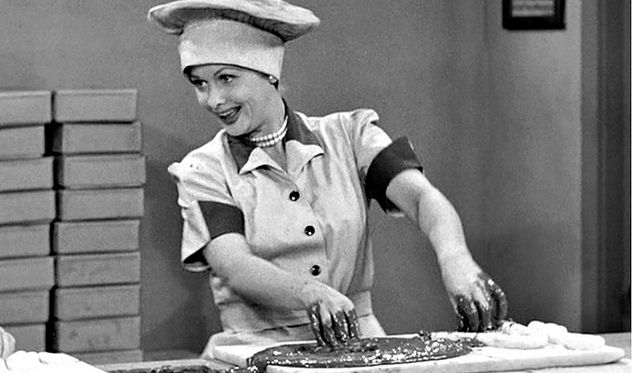
Before I Love Lucy became the most beloved sitcom in America — before Vitameatavegamin, chocolate conveyor belts, and the unforgettable “Luuuucy!” yell — there was a fight. Not a scripted one, but a real battle for love, for representation, and for risk.
And Lucille Ball? She wasn’t just the queen of comedy — she was a quiet revolutionary.
🚫 The Network Said No
When CBS first considered greenlighting I Love Lucy, they were thrilled at the idea of a comedy led by Lucille Ball. She was already a radio star, known for her razor-sharp timing and expressive face. But the moment she said she wanted her real-life husband, Desi Arnaz, to play her on-screen spouse, executives froze.
The reason? Arnaz was Cuban.
CBS executives feared that American audiences — especially in the conservative 1950s — wouldn’t “buy” a mixed-race couple. They suggested she be paired with a white actor instead. After all, they argued, it was “just television.”
“He’s my husband in real life,” Lucille reportedly said. “If he’s not in the show, I’m not doing it.”
That single line would change television history.
💥 The Risk That Made History
Instead of giving in, Lucille and Desi took matters into their own hands. They hit the road with a vaudeville-style act to prove to skeptics — and sponsors — that American audiences did love the chemistry between a red-headed American woman and a Cuban bandleader.
Audiences roared with laughter. Studio heads couldn’t deny it anymore: Lucille and Desi worked — and they were already rewriting the rules.
They went on to create Desilu Productions, the very company that would produce I Love Lucy, putting Lucille in the rare position of being both star and studio head — unheard of for women in that era.
🧨 The Politics of Love
But I Love Lucy wasn’t just a sitcom — it was political. At a time when America was steeped in Cold War paranoia and racial conservatism, I Love Lucy quietly introduced a Latinx lead into mainstream television, normalized a bilingual household, and proved that love didn’t look just one way.
Lucille Ball didn’t just break barriers — she bulldozed them, all while making us laugh.
“She knew exactly what she was doing,” said a media historian. “She played the fool on-screen, but behind the scenes, Lucille Ball was the smartest person in the room.”
💡 More Than Just a Show
I Love Lucy would go on to become the first TV show ever filmed before a live audience with multiple cameras — a format still used today. It became the most-watched show in America for four straight seasons.
And it all started because Lucille Ball said “no” to playing it safe — and “yes” to love.
📺 Legacy: Today, Lucille Ball is remembered as a comedy legend. But perhaps her greatest act was never written in a script — it was standing up for her husband, her vision, and her right to tell a different kind of American love story.
